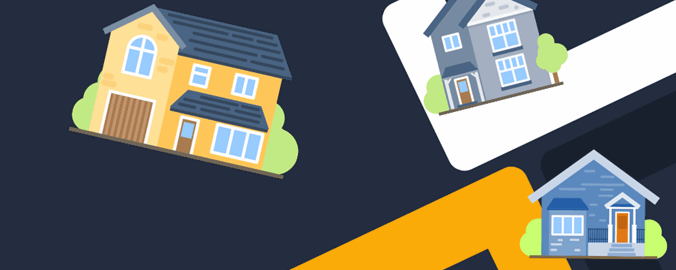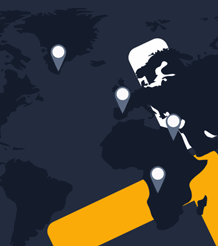
Guide to Property in Portugal
Property purchasers and holidaymakers have been flocking to Portugal since the late 1960's and today Portuguese property still represents good value for money. While demand continues, Portugal remains a highly sought after location for new and resale properties, particularly in the popular resort areas of the Algarve.
Low cost airlines vie for services to Portugal's three international airports, bringing increased competition and lower fares each year. A sound EU standard transport infrastructure and a solid economic climate help to make Portugal a modern arena in which to invest in property today. With capital growth currently at around 10% per annum in hotspot locations, shrewd investors are looking to Portugal to gain stable medium to long term returns on their investment, through capital appreciation as well as rental yields.
New emerging markets are now in their early stages, such as those along the Silver Coast just north of Lisbon and further north near Porto. Here prices can be as much as 30% lower than in more popular resorts further south, while potential for growth is rocketing due to improved infrastructures and a new trend among foreign property purchasers for rural locations away from the more traditional resorts. Meanwhile, golf resorts and related off-plan investments on the Algarve maintain their popularity among the golfing set looking to make the most of the warm climate and excellent facilities to be found in the region.
Propertyshowrooms.com and Property in Portugal
We believe our clients will be seeing some encouraging results from early purchase in developments in Portugal and we are pleased to be able to offer carefully vetted developments at unbeatable prices. Portugal has a solid economic structure and its proximity to the UK and the rest of Europe is a great advantage for those looking for a safe investment near “home”. With prices still lower than in many regions of France or Spain and a high standard of living, we are confident property purchasers will benefit from a well chosen investment property in Portugal.
Portuguese politics runs on a democratic system and as full member of the EU and NATO. Property in Portugal is good value for money and of better quality build than many of its near neighbours.
Foreign purchasers are attracted to the Portuguese climate and relaxed quality of life while today more than 100,000 Portuguese properties are owned by foreigners. A rich culture, English speakers in professional institutions and a modern, safe social climate make Portugal a natural choice for many visitors to Portugal.
Can Foreign Nationals Own Property in Portugal?
Yes, foreign individuals can purchase property in Portugal without restrictions.
Why Should I Choose Portugal?
If you are looking for a safe medium to long term investment, the Portuguese property market has much to offer and healthy rental yields and capital appreciation of up to 10% is being achieved in some hotspot locations. Portugal's huge appeal as a tourist location and second home or retirement option is due in part to a safe and solid economic climate that continues to draw overseas property purchasers.
Other factors such as high build quality compared with other European locations, a low cost of living and a beautiful climate are added factors to draw purchasers. For golf enthusiasts, the abundance of courses extending throughout the popular Algarve in southern Portugal are famed for their world class excellence and top notch facilities. Finally the proximity of Portugal from many EU locations, along with a large expatriate community both contribute to making it a highly popular choice amongst foreign purchasers.
What is the Economic and Political Situation?
Economically and politically, as a member of the EU and of NATO, Portugal offers a modern and stable environment in which to invest. The tourism industry has undergone a high degree of development and now contributes 5% of the wealth of the Portuguese economy. Since EU membership, Portugal has come a long way to raise living standards to levels of fellow EU states and a steady inflow of EU funds has helped modernise the country's entire infrastructure in line with today's standards.
The joining of EMU in 2002 brought exchange rate stability to Portugal, as well as a drop in inflation and lower interest rates. Falling interest rates have caused a reduction in the cost of public debt and a greatly improved fiscal environment.
How do we Travel to Portugal?
Many major budget airlines operate to Faro (serving the Algarve) and Lisbon (for Lisbon and the Silver Coast), but you will also find some more limited services to Porto, an ideal entry point for access to the north of Portugal.
Airlines flying to Portugal include BA (www.ba.com), easyJet (www.easyjet.com), Ryanair (www.ryanair.com), TAP Air Portugal (www.flytap.com) and First Choice (www.firstchoice.co.uk)
What is the Direct Flying Time from UK to Portugal?
Portugal is approximately 2½ hours direct flying time from the UK.
Is a Visa Required to Enter Portugal?
A visa is not required to visit Portugal for stays up to 90 days.
Buying a Property in Portugal
The property buying process in Portugal is relatively easy and hassle-free. Below is a general guide aimed at familiarising you with what to expect when purchasing Portuguese real estate.
Foreigners can buy property in Portugal without restrictions but the process varies a little from that in the UK. A good, English speaking local lawyer is essential to assist you in the purchase of your property and will ensure you do not fall victim to any potential pitfalls.
As with all property purchases the world over, first it is essential to work out your specific budget and criteria for buying, as well as consider what factors are important to your specific needs. In addition, a finance plan is also necessary, along with current information from banks and lending institutions so that you are well informed prior to finding your dream property.
It is important to note that residential property legally must have the following documentation:
- Habitation Licence for all property constructed after 1951
- Official record at the Land Conservatory
- Caderneta Urbana (detailed description of the property) from the Tax Office
The Notary and The Lawyer
As in many foreign locations, the Public Notary is a legal professional responsible for the witnessing (not conveyancing) of your property transaction. The notary is not a legal advisor and will not be held responsible for any irregularities in contracts he is to witness. It is therefore of utmost importance to hire a good lawyer to keep up to the mark on the state of legal documents, payments and permits pertaining to your purchase. They will also obtain your obligatory fiscal number and arrange for your payment, if necessary, of the CEMI, a variable state tax payment, prior to completion of sale.
Promissory Contract
This contract details all the conditions of the sale is a legally binding contract that is witnessed by the Notary. At this time, you are required to pay a deposit (usually 10% of the property value). Should the vendor withdraw from the sale after signing this document, he will be obliged to pay you double this amount and if you pull out, you will lose your deposit to the vendor.
The Act of Sale
Normally you will be ready to sign the Act of Sale, or Escritura de Compra e Venda three or four weeks after the Promissory Contract, once all the legal checks and transactions have been completed. The Notary verifies all necessary documents are correct prior to the actual payment taking place. Finally, you will receive a photocopy of the entry of sale which will be signed and sealed, and your new ownership will then be registered at the land registry.
Costs
It is wise to set aside 15% on top of the purchase price to cover transfer taxes, notary fees (2.5% of property price), stamp duty, mortgage arrangement fees and surveyor's fees. Legal fees are normally set at between 1 and 2% of the property price. A power of attorney will set you back a further approx. 200 GBP if you are unable to be present for the Act of Sale.
If you are building a property, 17% VAT is chargeable on all your building materials and builders' costs.
Should you be purchasing property in Portugal that you do not intend to live in permanently, the Portuguese law requires you to nominate a fiscal representative (your lawyer or a good friend) to receive your correspondence from the Portuguese tax authorities.
Mortgages
Euro mortgages are available for foreigners in Portugal to fund between 60 and 80% of the property price and will vary according to bank and your particular financial background. Both repayment and interest only mortgages are widely available with fixed and variable rate options. Currently interest rates in Portugal are low, at around 3.40% (2007).
The maximum loan term spans 30 years and the minimum loan value is set at 20,000 GBP. Lenders will not normally take into account rental income when calculating an applicant's level of borrowing.
Some developers of off-plan developments offer buyers installment plans over a period of years. Charges applicable vary according to developer and repayments are index linked. Although these deals can sometimes be highly beneficial, it is always advisable to shop around for the best mortgage or other finance arrangement to suit your needs.
If you own property in your own country and would like to borrow against this in an equity release plan, we can introduce you to an independent financial advisor to assist you in raising the necessary finance.



